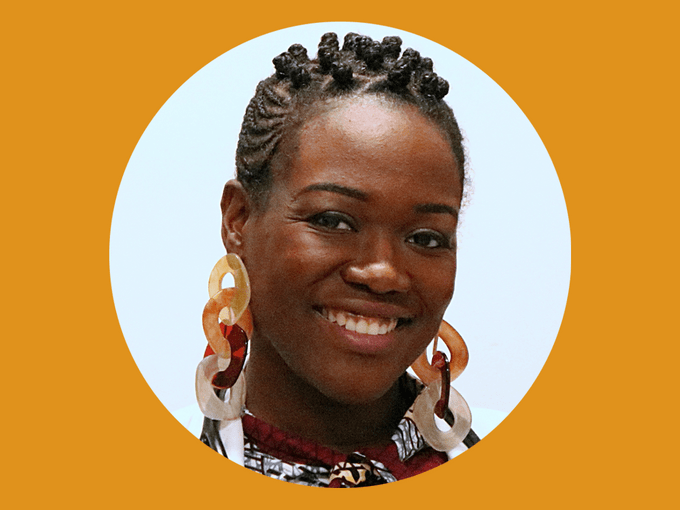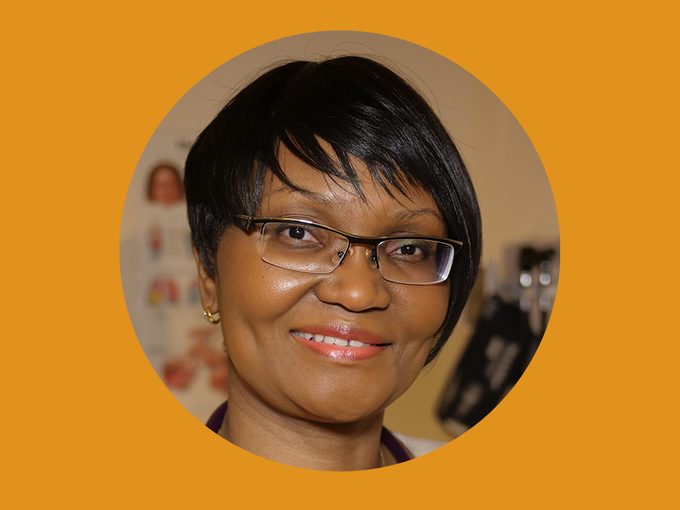Incredible Black Women Who Are Changing Canadian Health Care
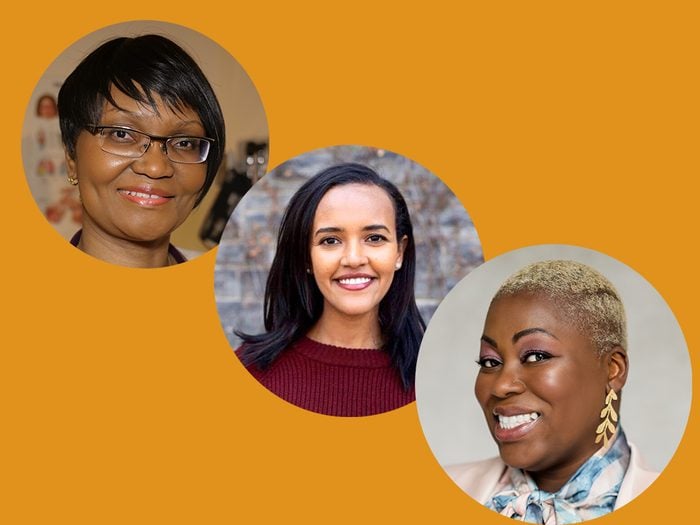
The changemakers Canadians ought to know about, according to seven Black doctors and health care researchers.
Throughout the COVID-19 pandemic, Canadians paid homage to the health care workers on the frontlines. We banged pots and pans, put signs in our windows and posted social media messages thanking these heroes. The essential role of our health care workers has never been clearer—but the contributions of the Black women who are a vital part of that system, are too often overlooked.
Not only are Black doctors and health care workers underrepresented within the field, but they also face barriers on the job like racial bias and microaggressions.
Yet during the pandemic—which disproportionately affected Black communities—these women stepped up to ensure that Black Canadians had equitable access to care and medical services. Cheryl Prescod, executive director at Black Creek Community Health Centre, advocated for better vaccine access in areas of Toronto that were severely underserved, by helping set up vaccine clinics in those areas. At the same time, Dr. Onye Nnorom and the Black Physicians of Ontario advocated tirelessly for the collection of race-based COVID-19 data that would help properly inform health care responses to the disease within the community.
The leadership of Black women in health care is not new—these contributions go all the way back through Canada’s history. Figures like Marisse Scott, a nurse and activist from Owen Sound, Ontario who fought for the right to attend nursing school, and Bernice Redmond, the first Black nurse to practice at a hospital in Canada, were trailblazers. And even though women like Scott and Redmond continue to make history, much of their work and accomplishments remain unknown.
This Black History Month, we are celebrating the work of Black women in medicine who continue to build inclusive, culturally safe health care for the entire country. We asked seven prominent Black doctors and health care researchers to spotlight changemakers Canadians ought to know about. Here’s who they picked:
Dr. Onye Nnorom
Family doctor and public health specialist and president of Black Physicians of Ontario
“Dr. Onye Nnorom has changed Canada’s health history by focusing on inequity in the health system. She has done this locally, nationally and internationally. Locally, she teaches medical students about inequity in medicine, has been instrumental in the formation of Black Health Vaccine Initiative (BVHI) to ensure that Black residents of Ontario receive vaccines, and are educated and vaccinated by Black Health workers. Internationally, her podcast Race, Health and Happiness has focused on navigating professional life as a racialized individual.”
— Dr. Modupe Tunde-Byass, physician, president of the Black Physicians of Canada and assistant professor of obstetrics and gynecology at the University of Toronto.
Dr. Setorme Tsikata
Family physician and associate professor with the University of Alberta
“Dr. Setorme Tsikata is of Ghanaian origin and has encouraged many young women, including myself, to get into medicine. She has now established the Compassion Medical Wellness Centre on the outskirts of Edmonton, to reach the Black and immigrant populations who live around there. She is also an associate professor with the University of Alberta training medical students and residents, and has greatly contributed to [the administration of] palliative medical care in a culturally sensitive way for the Black community. She strives for excellence in her work every day and strives even more to bring it out in others. She is down to earth, a mother to many as well as a physician par excellence.”
— Dr. Ekua Amponsah Agyemang, resident physician (PGY4) at the public health and preventive medicine program at the University of Alberta where she recently handed over as chief resident.
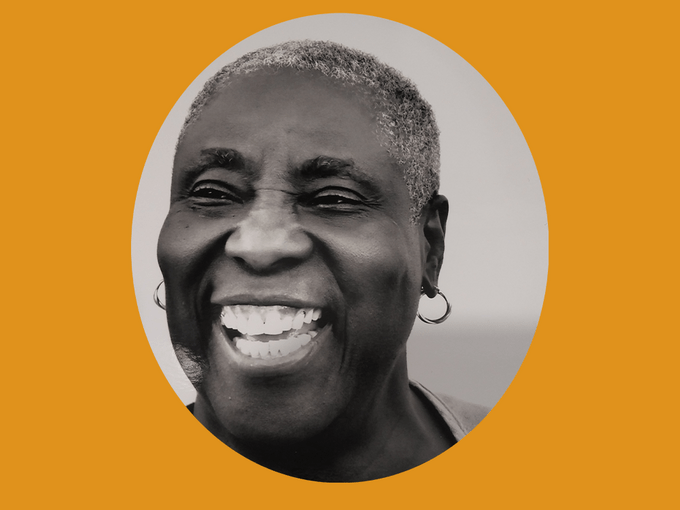
Camille Orridge
Senior Fellow at the Wellesley Institute and former CEO of the Toronto Central Community Care Access Centre
“I met Camille Orridge through Massey College, where she is a Quadrangle Society Member. She inspires me because she is a passionate and persistent advocate for Black health and demonstrates that it is possible to hold positions of power and use them for systemic change. For example, she supported the launch of Language Services Toronto (a telephone interpretation service for non-English speaking patients of Toronto’s hospitals that markedly improved aspects of access to Toronto’s hospitals). In the context of social determinants of health such as education, she co-founded Pathways to Education, a program with 27 chapters across the country, that has touched the lives of thousands of high-school students by helping them to graduate. Overall, she is an amazing role model and cherished member of Toronto’s Black community.”
— Chantal Phillips, third-year medical student at the University of Toronto with an interest in equity-based research that generates tangible, community-focused interventions.
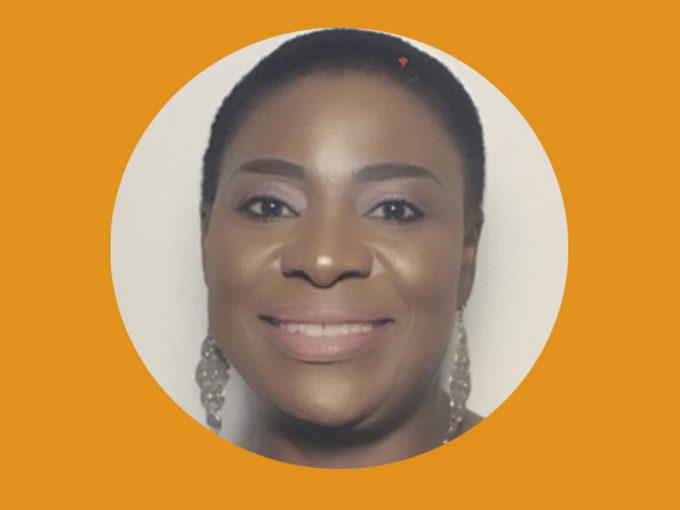
Dr. Modupe Tunde-Byass
Physician and president of the Black Physicians of Canada
Dr. Modupe Tunde-Byass has been an active staff member at North York General Hospital (NYGH) since 2004, where she has held key administrative positions such as residency site coordinator and interim chief of ob-gyn. She was the co-chair for the Quality Standard on Increasing Access to Vaginal Birth After Cesarean Section and an expert panel member for early pregnancy complications and loss. She has received numerous teachings and innovation awards.
“She launched a Canada-wide program to match medical residents with mentors that identify as Black. This was done with attention to details and process and inclusivity. It is a landmark initiative.”
— Dr. Mireille Norris, internist and geriatrician at Sunnybrook Health Sciences Centre in Toronto and assistant professor of medicine at the University of Toronto.
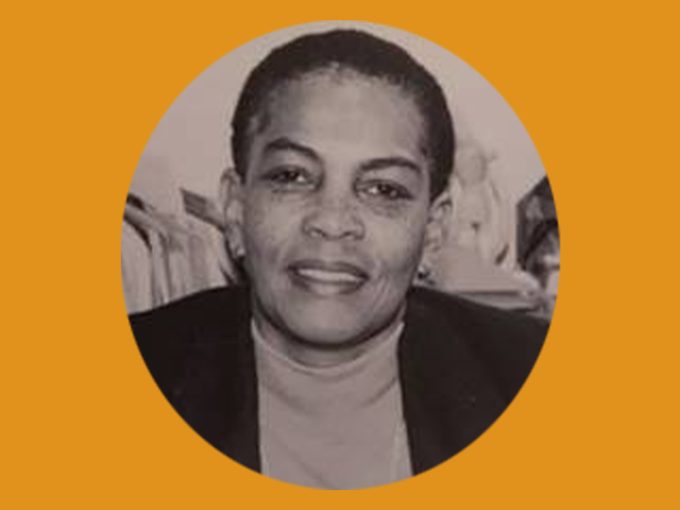
Dr. Miriam Rossi
Pediatrician and former associate dean of student affairs in the Temerty Faculty of Medicine, University of Toronto.
“The late Dr. Miriam Rossi worked at the Faculty of Medicine of the University of Toronto for many years and in all that time, she was a tireless advocate for equity, diversity and inclusion, especially for Black students. She was so passionate about Black representation in the field of medicine. I met her when I was an undergraduate student and was inspired by her passion, her energy, her humility and her ability to connect with people. She was a true trailblazer and there is a direct line connecting her efforts to the fact that the University of Toronto medical school now has more Black students than ever before. Her many years of work in this area exemplifies to me why we have to keep up the fight and that this work is a marathon, not a sprint.”
— Dr. Aisha K. Lofters, family physician, associate professor and clinician scientist at the Department of Family and Community Medicine, University of Toronto.
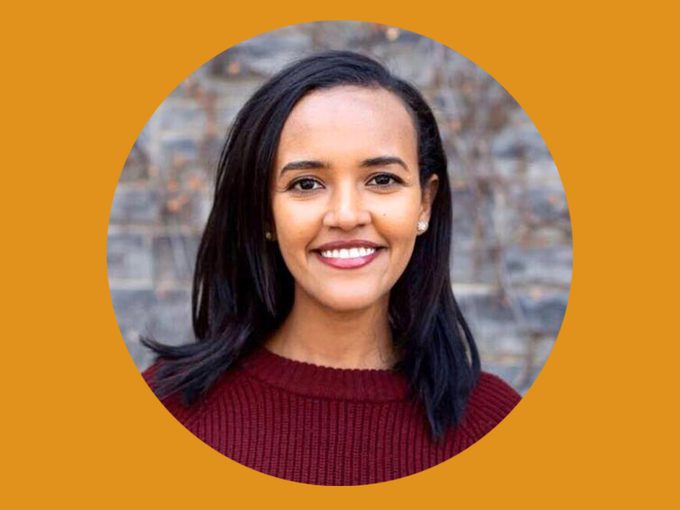
Dr. Rahel Zewude
Founder and president of the Black Physicians of British Columbia
Dr. Rahel Zewude is an internal medicine resident physician at the University of British Columbia. She attended medical school at the University of Toronto, where she was the co-president for the Black Medical Students’ Association and created several new initiatives, including a Black health speaker series, which gave students the opportunity to learn from medical professionals about how race and health interact. She also ran the Summer Application Support Initiative, which provided application advice and interview preparation to students from underrepresented communities who may be interested in a career in medicine, and played a major role in expanding the advocacy and mentorship efforts of the association. In 2020, she formed the Black Physicians of British Columbia in order to bring together marginalized Black physicians and trainees in B.C.
“Dr. Rahel Zewude’s dedication to advocacy for the Black community in terms of representation in medicine and access to equitable health care is unparalleled. I am proud to call her my friend.”
— Dr. Ruth Habte, Obstetrics and gynaecology resident physician at the University of British Columbia.
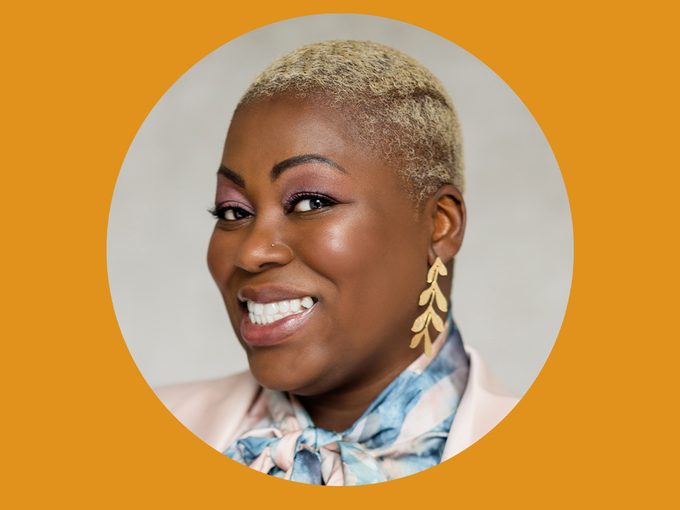
Dr. Mojola Omole
Surgical oncologist and co-host of the CMAJ podcast
“Dr. Mojola Omole is amazingly talented, and her excellence in this field gives patients comfort in knowing that their surgeon is not only very talented but also understands the importance of cultural sensitivity, diversity and inclusion. As a racialized person, the significance of having a female person of colour perform such an important surgery and hold your hand through the process cannot be quantified. Her work in reconstructive top surgery is also tremendous. Her practice is inclusive; for members of our society that already feel marginalized or rejected, to be able to see a surgeon that is compassionate and creates a space where everyone feels safe, heard and understood makes a huge difference.
Even with all that, she still finds time to be active in the Black community. She actively works on recruitment of young Black medical students, volunteers at many of the Black community vaccine and testing programs and is active in furthering education in the Black community. [She does] this, all while raising an amazing Black boy of her own.”
— Dr. Abosede Akintan, family physician and medical director at the Albany Medical Clinic and St. Clair O’Connor long term care facility.
